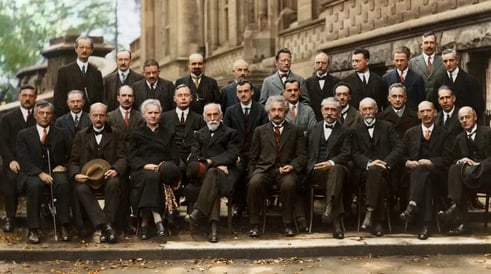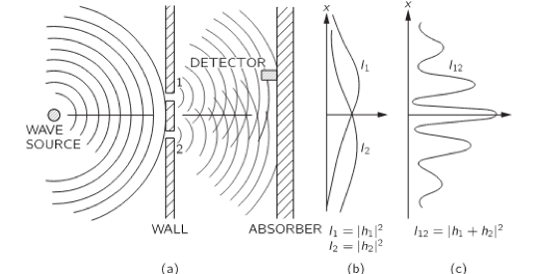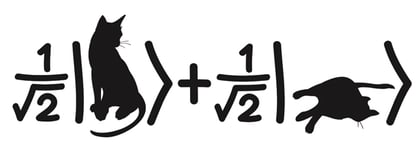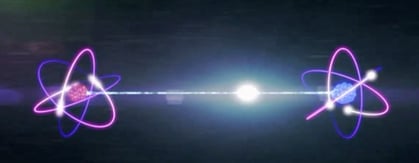What is Quantum?
Understanding quantum: A look into the subatomic world
QUANTUM PHYSICS
The realm of quantum mechanics might sound like a plot straight out of a sci-fi movie. With particles that can be in two places at once, cats that are simultaneously alive and dead, and computers that promise to revolutionize our world, the quantum realm is mysterious, fascinating, and, at times, counterintuitive. In this blog post, we'll explore what "quantum" really means and why it's so important.
The Birth of Quantum Mechanics
At the dawn of the 20th century, classical physics, governed by the laws of Newton, was the undisputed description of the universe. But as scientists studied the behavior of atoms and subatomic particles, they discovered phenomena that couldn't be explained by classical theories.
For instance, the blackbody radiation problem and the photoelectric effect puzzled physicists. The old theories couldn't provide answers, and that's where quantum mechanics came into play. A new framework was needed, and the pioneers of quantum theory, including Max Planck, Albert Einstein, Niels Bohr, and many others, provided just that.
What Does 'Quantum' Mean?
The word "quantum" is derived from the Latin "quantus," meaning "how much." At its core, quantum mechanics deals with discrete quantities or "quanta." Unlike classical physics, where energies can vary continuously, quantum mechanics describes energy as occurring in distinct packets or "quantized" amounts.
Wave-Particle Duality
One of the most intriguing concepts in quantum mechanics is the wave-particle duality. It suggests that particles, like electrons or photons, can behave both as particles and waves. This duality is beautifully demonstrated by the famous double-slit experiment. When particles are observed, they behave as individual particles, but when unobserved, they exhibit wave-like properties.
Superposition and Entanglement
Two other pivotal principles in quantum mechanics are superposition and entanglement.
Superposition: Quantum particles can exist in multiple states simultaneously. Schrödinger's cat thought experiment exemplifies this. Imagine a cat in a sealed box with a radioactive atom that might decay and release poison. Until we open the box, the cat is both alive and dead, existing in a superposition of states.
Entanglement: Two or more quantum particles can become intertwined or "entangled" in such a way that the state of one particle is dependent on the state of another, no matter the distance between them. This phenomenon, which Einstein famously dubbed "spooky action at a distance," challenges our everyday understanding of reality.
Quantum Computing
Harnessing the principles of quantum mechanics, researchers are now developing quantum computers. Unlike classical computers that use bits (0s and 1s) for computation, quantum computers use qubits. Because qubits can be in a superposition of both 0 and 1 simultaneously, quantum computers have the potential to perform certain calculations much faster than classical counterparts.
Why Quantum Matters
Quantum mechanics is not just a theoretical construct. It has practical implications. Technologies such as lasers, MRI scanners, and even computer chips rely on understanding quantum principles. As we delve deeper into the quantum world, we'll likely discover even more revolutionary applications.










Conclusion
The quantum world, with its oddities and quirks, might be challenging to grasp fully, but its significance is undeniable. As we continue to explore this fascinating realm, who knows what other wonders we might uncover? For now, one thing is certain: quantum mechanics has forever altered our understanding of the universe and our place within it.
